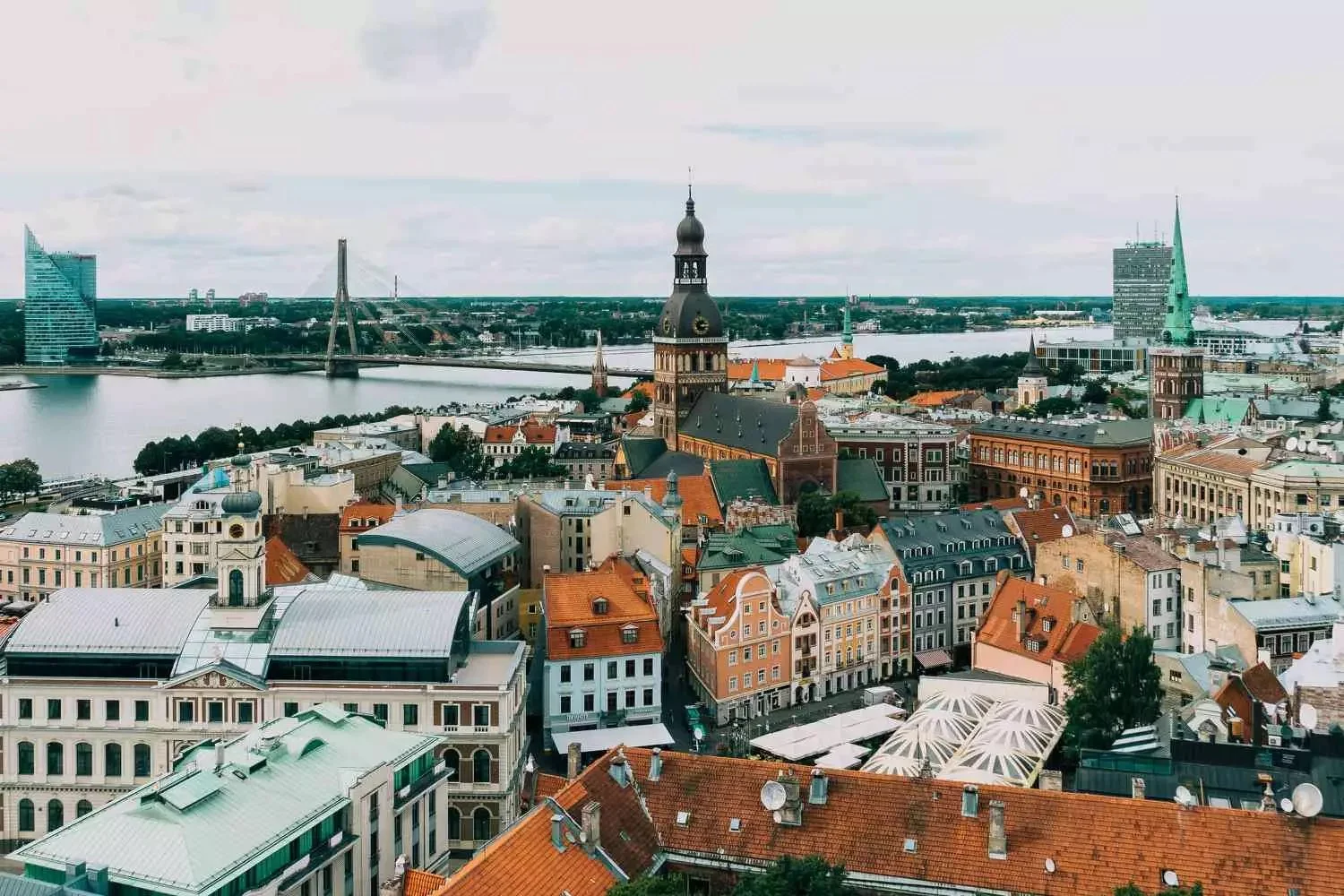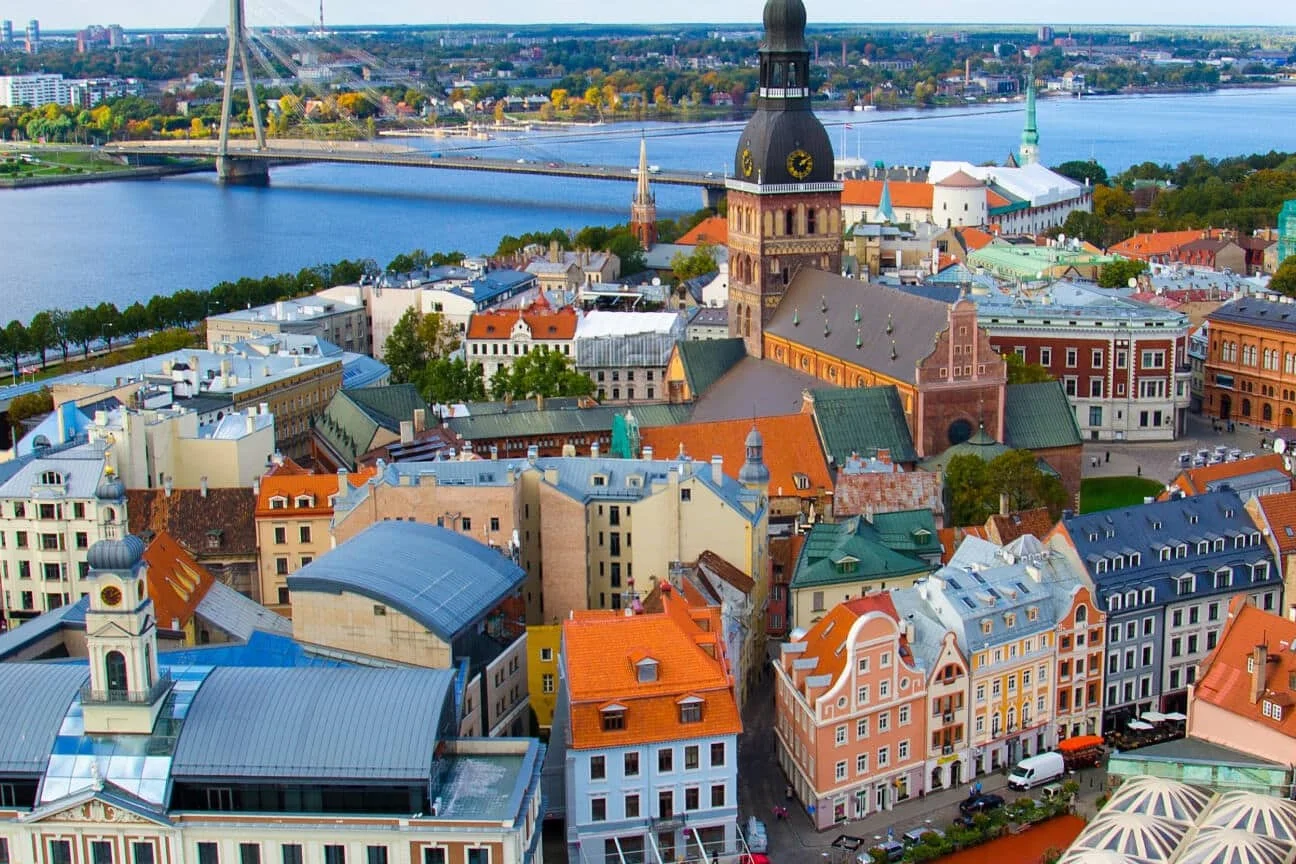Latvia 2030 – Sustainable Development Strategy of Latvia

Latvia 2030 – Sustainable Development Strategy of Latvia outlines the sustainable development objectives of Latvia for 20 years and recommends solutions for the efficient and sustainable use of culture, nature, economic, and social capital, particularly singling out the fundamental value of Latvia – human capital. The first priority is the development of the cultural space of Latvia because the identity of a strong and creative nation lies in our unique, inherited, and newly created material and spiritual values. It joins and unites society for the creation of new economic, social, and cultural values, which are appreciated and known around the world. Inhabitants of Latvia have a common material and non-material heritage, which has been accumulated in creative work that has lasted for centuries. Culture determines the foundation for what we are and what we want to be. Common cultural heritage, language, traditions, and perception of values are the main components, which ensure the sense of belonging to a specific community and promote the unity of society. In a wider sense, culture is a system of values, which is the foundation of the identity and lifestyle of an individual, community, and nation. Concurrently, culture is also a mechanism for the creation of such values, analysis, and transfer thereof, creating the sustainability of the cultural space of Latvia.
A creative individual and society, which can appreciate and use its creative potential, are the main driving forces of development. Only such a society can think and act sustainably. In a state as small as Latvia, every creative person is of great value. The bigger the investment of society and culture capital, the larger the added value to their work. Culture capital has a significant role in the development of personality in a creative society because it not only creates an economically active consumer but also a creatively active entrepreneur. Therefore, it is important to promote creativity as the main factor of competitiveness. Another important factor is a creative environment, which maintains cultural diversity, concurrently preserving cultural and historical heritage, directly and indirectly supports experiments and the creation of new products, thus creating fertile soil for the development of culture and the creative industry.
Scope of the measure:
- Local
- Regional
- National
- International
Main feature of the measure:
Latvia 2030 is the main long-term policy planning instrument of Latvia. Every other strategic planning and development document in Latvia has been and will be elaborated in accordance with the priorities and action directions of Latvia 2030. However, it is worth mentioning that although culture and its values always play an important role in long-term planning documents, there are usually difficulties in getting culture recognized in short- and medium-term planning documents.
Challenges identified in the implementation of this measure:
It is important to strengthen the belonging to Latvian cultural space, considering the ethnic factor, differences in income amounts of inhabitants, and the concentration of ethnic groups in certain territories. Culture shall foster not only creativity but also other necessary values of society to facilitate the development of Latvia, such as empathy, cooperation, involvement, and understanding of interculturalism. Civil society values have great potential in uniting national communities as they are important for both Latvians and other nationalities living in Latvia. It is worth investigating the added value of media space in the formation of the Latvian cultural space, to identify the actions necessary for increasing the role of language diversity and intercultural awareness and their impact on the economy. It is essential to consider the market gaps in the field of culture. Creativity is not only related to creative industries; creativity should be integrated into other fields of the economy to generate profit, as well as in regional development to increase the quality of life of indigenous people. Access to cultural space needs to be strengthened by concentrating on those groups of inhabitants who are less involved in cultural processes and are more passive, as well as access to cultural content in the digital space needs to be fostered, especially regarding youth, diaspora, and inhabitants living in regions.
Main conclusions of the evaluation of the measure:
The Strategy recognizes the essential role of culture, creativity, and cultural diversity in the sustainable development perspective of Latvia till 2030. Due to the fact that Latvia 2030 was elaborated quite recently, the impact has been partially measured.
Indicators used to determine impact:
The indicators defined within the first priority of Latvia 2030 – development of the cultural space of Latvia – are incomplete because they marginally reflect the attainment of the objectives set in Latvia 2030.
 Albania
Albania Algeria
Algeria Andorra
Andorra Argentina
Argentina Armenia
Armenia Australia
Australia Austria
Austria Azerbaijan
Azerbaijan Bahrain
Bahrain Belgium
Belgium Bolivia
Bolivia Brazil
Brazil Bulgaria
Bulgaria Cambodia
Cambodia Cameroon
Cameroon Canada
Canada Chad
Chad Chile
Chile China
China Colombia
Colombia Costa Rica
Costa Rica Croatia
Croatia Cyprus
Cyprus Czechia
Czechia Denmark
Denmark Ecuador
Ecuador Egypt
Egypt Finland
Finland France
France Georgia
Georgia Germany
Germany Ghana
Ghana Greece
Greece Hungary
Hungary Iceland
Iceland India
India Indonesia
Indonesia Ireland
Ireland Italy
Italy Jamaica
Jamaica Japan
Japan Jordan
Jordan Kazakhstan
Kazakhstan Kenya
Kenya Kuwait
Kuwait Latvia
Latvia Lebanon
Lebanon Libya
Libya Lithuania
Lithuania Luxembourg
Luxembourg Malaysia
Malaysia Maldives
Maldives Mali
Mali Malta
Malta Mexico
Mexico Moldova
Moldova Monaco
Monaco Morocco
Morocco Netherlands
Netherlands New Zealand
New Zealand Nigeria
Nigeria North Macedonia
North Macedonia Norway
Norway Oman
Oman

